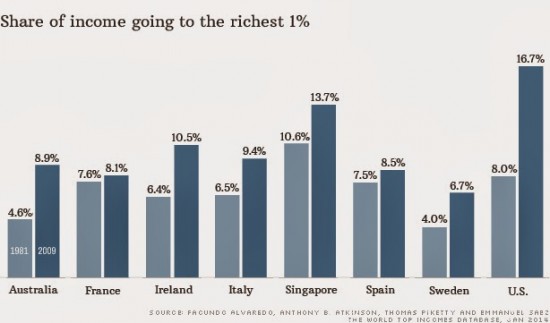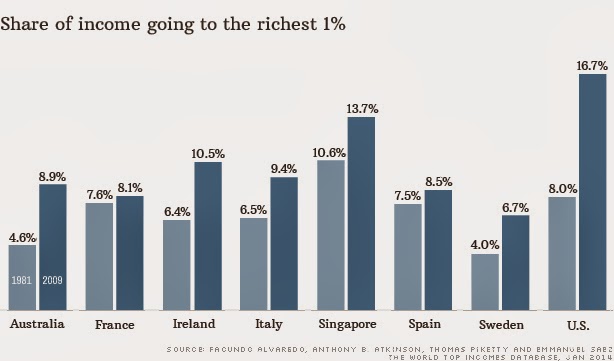German automotive industry at a crossroads
Kategoria: Business

This Great Graphic was posted on CNN Money by Tami Luhby. It shows the percentage income in a eight countries, including the US, that the richest 1% receive. The lighter bars are for 1981 and the darker bars are for 2009. The data comes from a new Oxfam report.
While the 1% in the US command a much greater share of national income than their counterparts in the other countries represented here, it is even more. Data from 2012 suggests that the 1% command 20% of the national income in the US.
The disparity in the US has become part of the national dialogue. Republicans and Democrats are trying to define the issue and the policy response. It will likely be prominently featured in Obama’s State of the Union address. Wealth and income disparity was a topic at the World Economic Forum in Davos, though it seems rather surreal.
The disparity in the US is stark, but it is hardly surprising. That the share of income of the 1% more than doubled in 27 years covered in the data is disheartening more than surprising. We are more surprised that the 1% in France did not grow its share as much as the other countries included here. Spain’s 1% also did not do as well as the counterparts in other countries. Sweden’s 1% commands the least amount of national income of the countries included here, but their share in 2009 was about the same as in Italy in 1981.



